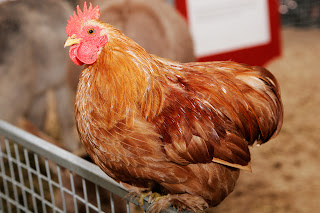With recent avian influenza concerns, backyard poultry owners should educate themselves and take the proper precautions to keep their flocks healthy.
Recent avian influenza cases in Minnesota and Wisconsin have been at the center of conversation in the poultry world for both producers and people with backyard flocks. To date, no cases have been reported in Michigan.According to APHIS, avian influenza viruses can infect chickens, turkeys, pheasants, quail, ducks, geese and guinea fowl, as well as a wide variety of other birds. Migratory waterfowl have proven to be a natural reservoir for the less infectious strains of the disease known as low pathogenicity avian influenza.
Symptoms of avian influenza include:
- Sudden death without clinical signs
- Lack of energy and appetite
- Decreased egg production
- Soft-shelled or misshapen eggs
- Swelling of the head, eyelids, comb, wattles and hocks
- Purple discoloration of the wattles, combs and legs
- Nasal discharge
- Coughing, sneezing
- Lack of coordination
- Diarrhea
Bio-security
There are many things you can do as a flock owner to take the proper precautions when there is concern about your bird’s health. Practicing proper and appropriate bio-security practices at home will help prevent the spread of disease. Simple practices can be used on farm and off farm.- Wash your hands after handling animals.
- Clean your equipment. Keeping feed and water dishes clean and sanitized will help minimalize contamination.
- Wear clean clothing and footwear when interacting with your birds and clean them immediately after contact has ended.
- Avoid direct contact with migrating fowl. This can include limiting access to bodies of water such as ponds, streams and lakes where migrating fowl may have contact.
- Separate birds that travel off the farm from horses that do not travel, if possible.
Keep up to date!
Educating yourself about proper flock health and issues that are currently occurring in the industry is extremely important and can help you develop an action plan for your flock. Visit the Michigan State University Extension Avian Influenza page for more information. Social media can help keep you up to date as well. Be sure to “like” the Michigan Department of Agriculture and the Michigan 4-H Poultry Program’s Facebook pages to easily keep up to date on the most current information.Visit the Michigan 4-H Animal Science Program website for more information on animal science programs.


